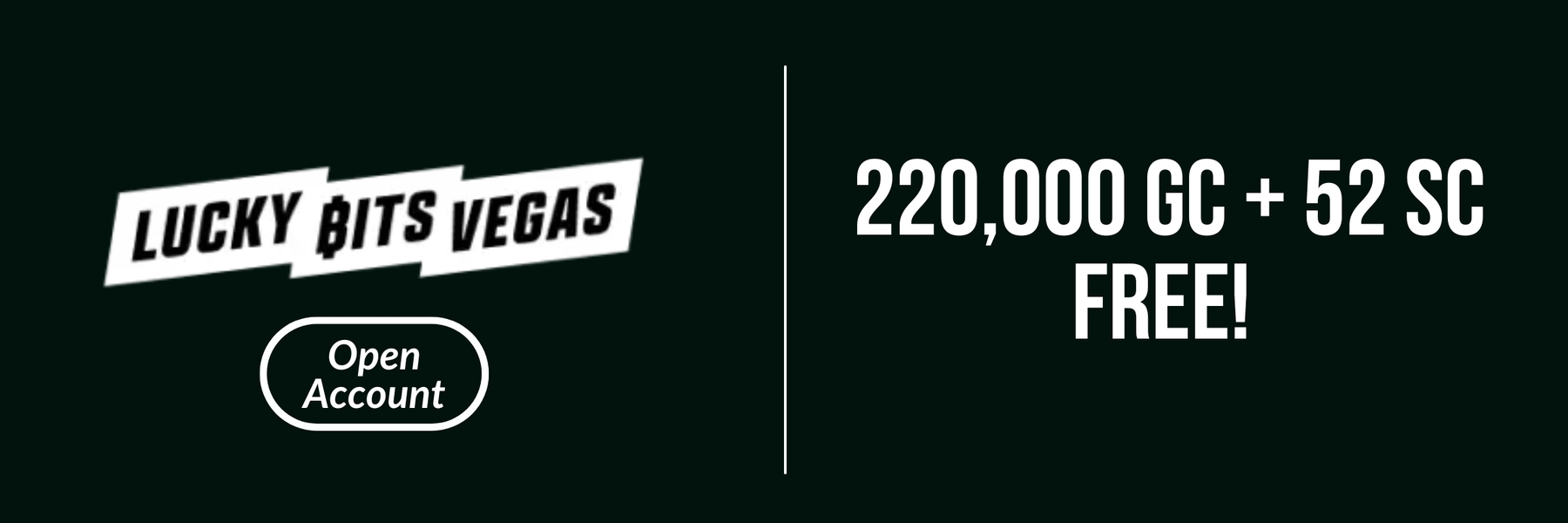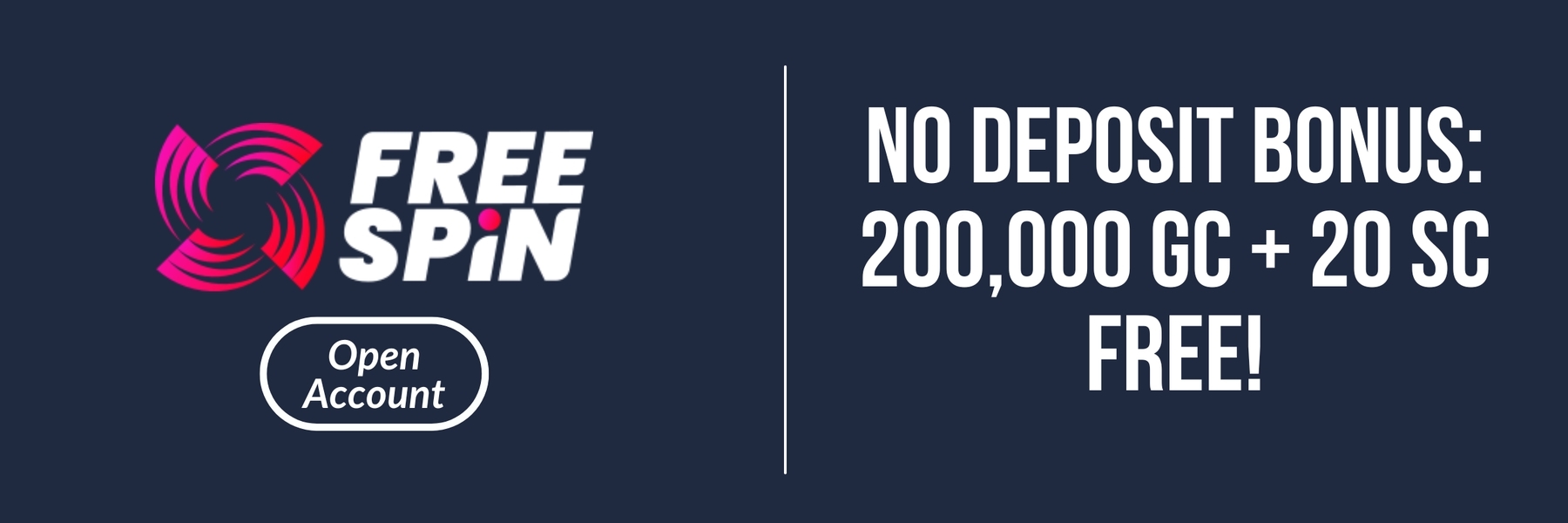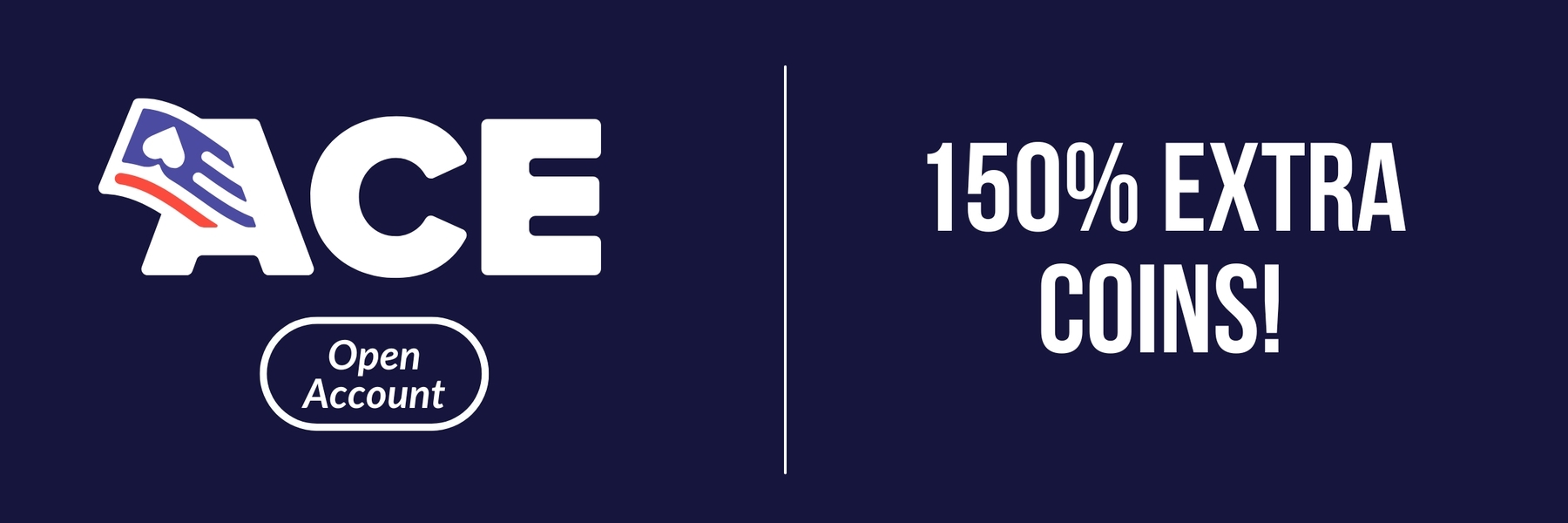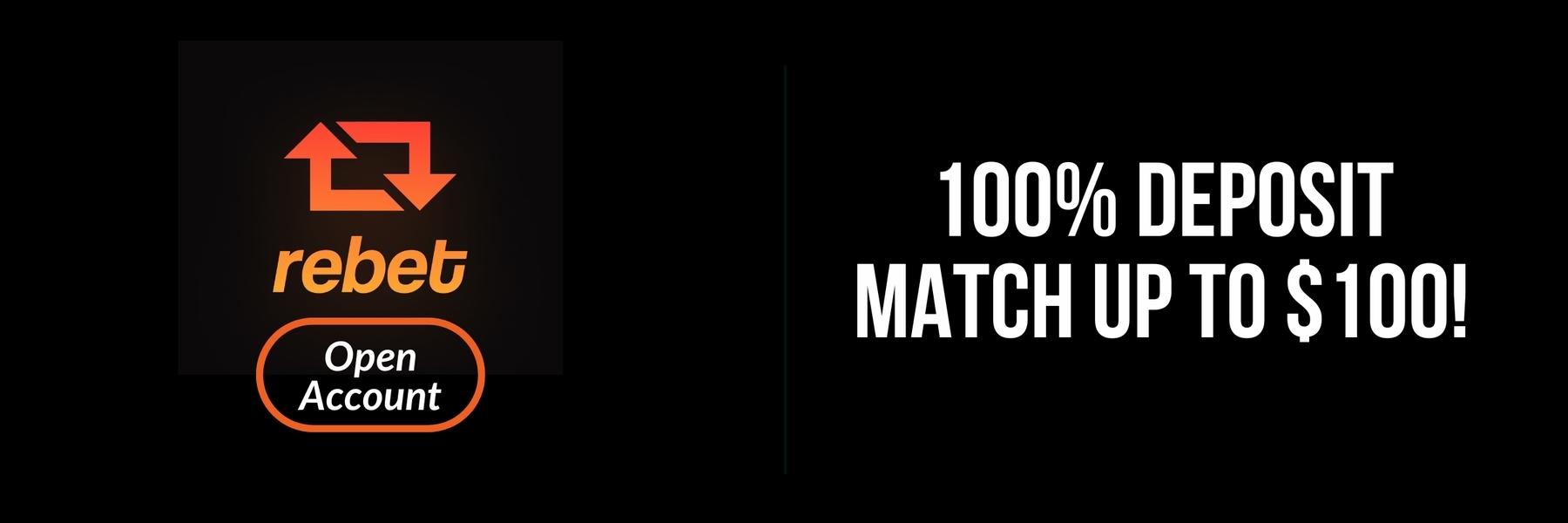00:05 - Rob Pizzola (Co-host)
Welcome to Circles Off, episode number 46. I'm Rob Pizzola, joined by Johnny from Betstamp. How's it going?
00:14 - Johnny Capo (Co-host)
Big episode today. We're really fired up. Let's not even waste any more time. Let's bring in the guest.
00:19 - Rob Pizzola (Co-host)
I have not seen you this excited in a long time. You're obviously a big mma fan and we have one of the biggest guests you can get out of the mma community this week. He is the lead play-by-play voice for the ufc. Find him on pay-per-view, espn, espn plus. He's also the co-host of the anik and floridian podcast, which you can listen to weekly basically anywhere where you can download or stream podcasts. John Anik, voice of the UFC. Thanks for joining us this week, john.
00:51 - Jon Anik (Guest)
Oh, it's a pleasure to be with you, boys, and I knew I was pronouncing Pizzola correctly the whole time. These local radio hosts in South Florida and you do a great guest spot with them, granted, but they've been calling you Pizzola and now that I hear you say your own name, I know I've been saying it correctly. But no, it's great to be with you boys. A little extra pep in my step for a pay-per-view week, obviously, so I'm excited. Where are you at right now, john? I am in South Florida, in my master bedroom, which is my makeshift podcast studio and a fighter meetings tomorrow. We still do them virtually for the Vegas shows. We do them in person for the Houston Texas type shows these days, but I'll be wheels up Thursday morning and we will be sprinting to right up until the pay-per-view, as is always the case.
01:36 - Johnny Capo (Co-host)
For sure. It's definitely a big one this weekend which we'll get into. But off the rip, we just want to ask you a lot of people might not know this. I know this from a while back, as I know you and rob uh did a couple episodes of a betting podcast back in the day, but you are a better. You do like betting on sports. You know, uh, maybe not the ufc, but you know nfl and you're a sports fan.
01:58 - Jon Anik (Guest)
Tell the people a little bit about that well, I'm in the red lifetime, but not by much.
02:03
I think, I played my first three-leg baseball parlay in 1998 at Gettysburg College in Pennsylvania. But there is something that's genetic about all of this in terms of gambling and betting sneaking us into cruise ship casinos when I was very young, so I've always had an appetite for it. I think I'm conservative enough in nature so I haven't gambled beyond my means, but there is a reckless nature to the way I approach the board. There's a given college football or basketball Saturday where I have entirely too many bets, knowing full well that it's going to take like a 13 and six to make any money, and it usually doesn't happen. So I have action pretty much every day on everything that isn't fighting and, you know, hopefully I will be able to do that until the day I die with my $55 straight wagers.
02:56 - Rob Pizzola (Co-host)
Now, obviously, john, you have a full-time gig that I assume occupies a lot of your time on a regular basis, the betting component component as you talked about. I mean, you have, as you said, maybe a dozen bets in any given day. Walk us through a little bit of your handicapping process, if there even is one, or is it just something now that's more of a recreational thing for you, where you're trying to get a little bit more entertainment out of the games, like typically on a daily basis? How much time will you actually spend going through, let's say, a baseball card or a college football?
03:25 - Jon Anik (Guest)
card. Sure, some of that's dependent upon whether or not I have a UFC live event, and if I get 60 minutes on a given day, certainly I feel better about my selections and that also enables me to tune out the noise. And when I say noise, oftentimes that might just be the volume of bets that I get from random handicappers that I've sort of accumulated over the years and sometimes I want to or I'm inclined to play those because I know there's research and thought that goes behind it and I know that they are overall hit at a higher percentage than I do. But I do find that a lot of sharp minds are way too dismissive of of hunch playing and and system playing. You know, trying to get in after a long losing streak which I'll be doing with the Florida Panthers here, even though the price is going to be obscene against the Ottawa Senators. You know I enjoy it.
04:10
Yes, it's more recreational in nature now because I have three kids, 10 and under, and a very comprehensive full-time job that has me on the road about 100 nights a year. But what's crazy is there might be like a Thursday, friday, leading into a pay-per-view where I won't have any action just because I forget to get in there and I feel like I lose my feel for the board. So I hope there's a time in my life where I can really devote the time that it needs to do it, because it really is my foremost passion. Like I think, if I could be doing anything, it would be researching games and trying to bet on those games. That's how I'd be spending my day. Maybe play nine holes in the morning, you know, but hopefully one day.
04:49 - Rob Pizzola (Co-host)
That sounds like a perfect day, I think, for both me and Johnny. Yeah.
04:53 - Johnny Capo (Co-host)
So, uh, okay, here's what we wanted to ask. So we've heard um in the past. I've heard on Joe Rogan's podcast him say that in the early days he actually used to bet on the fights and then he kind of realized, like shouldn't be doing. This is way back in the day. He's been open about it. Um, I assume you're prohibited from betting on the actual UFC events. Are you prohibited from betting on any MMA event or is it just UFC?
05:14 - Jon Anik (Guest)
So I have a pretty good answer for this question. I will tell you I'm a full-time UFC employee. Joe Rogan is not. So there's a little bit of a difference here, I would imagine, in so far as I had to sign a document that said in no uncertain terms that I would not be betting on this stuff. That document was later amended at some point in my time with the UFC I'm coming up on, I think, 11 years in November but there was some point in time I can't tell you when when that document was expanded to include other MMA promotions and even boxing.
05:42 - Rob Pizzola (Co-host)
So yeah, I mean the day I retire.
05:45 - Jon Anik (Guest)
I'm going to the day I retire I'll probably have a massive bet on some boxing favorite. You know.
05:51 - Johnny Capo (Co-host)
So so then here's what we want to ask you Um, you mentioned and you're open about it and we respect that that you know you're slightly lifetime in the red betting and you don't have. You know you got kids and full-time job. Um, if you were able to bet on MMA or UFC specifically, you think you'd clean up.
06:13 - Jon Anik (Guest)
No, definitely not, Definitely not. You know, there's certainly a film study component to it that I think is important, but there's so much developmental time between fights and in theory, every fighter is trying to not just present their best version to date but a different version that hasn't been filmed over on film by the opposing coaches, I think I don't know. Man, I honestly don't know how much MMA I would bet relative to other sports. Certainly there are opportunities.
06:37
Dana White's contender series on a Tuesday, I know, has commanded a lot of action because I think, and you see a lot of line movement from minus 180 to minus 400, oftentimes in a feature bout situation. So I think there are still spots in MMA, but I certainly think the marketplace has caught up to it. And no, I mean, yeah, I think I I get more wrong than right. But oftentimes I'm having fighter meetings with these guys and I know we're going to get to some of that stuff. But even though inside information doesn't always pan out, you know, sometimes I get a great feel from a guy sitting across from him on Thursday and sure enough, you know, my hunch plays out that way. But I think it's a very hard sport to bet on, not unlike the rest of them, candidly.
07:19 - Rob Pizzola (Co-host)
Yeah, would agree with you there. I mean, betting is just difficult, regardless of what you're betting on. I'm very interested in that answer because and this is just there's sports fans who are on the opposite ends of the spectrum in terms of watching the games and whether or not that actually helps them handicap hockey games. Sometimes I'm able to pick up on things that maybe my model is not capturing and as an example, this year I notice in empty net situations in hockey, teams are often shooting at the nets. Now, rather than just trying to get the puck out of the zone, they're willing to take a risk and that's affected end games a lot more with fighting, depending on who I talk to, some say it's the be all and end all of.
08:04
I watch every single fight and I'm able to really handicap things really well because of that. There's others who are just like. I don't even watch the fights myself, I just look at historical results, I look at styles and I'm able to come up with some sort of process. I'm just curious Do you think that there is an actual edge in keeping up with the sport and actually watching the events, or do you think that it possibly creates some sort of bias where someone might get very attached to the last outcome they saw, completely forget about things that have happened months and months ago, and then they kind of just apply that as the standard going forwards no, I mean, you put it well I would lean towards the film study because of the intricacy of the sport and I do believe that there's only so many stripes that you can really change as a fighter, but I would definitely lean that way.
08:53 - Jon Anik (Guest)
As far as that conversation is concerned, who have paid handicapping types to study film for them? You know I've had coaches who have sent me long form film that they give to their athletes. We have some athletes that eat film, others who don't go near it and literally high profile guys like Dominic Cruz, former two-time UFC Bantamweight champion right, who is ubiquitously regarded as the sharpest mind in MMA and yet for his fights totally deferential, doesn't watch any film, gives it all to his coach, you know. So, generally speaking, film helps me for the broadcast and I would imagine it would help me if I was actually handicapping MMA. But gosh, there's so much that goes into just getting to fight night. It's not the Olympics like you're showing up every four years, but even for me, with inside information, they're not disclosing any injuries to me. So I I think you really got to pick your spots and and be in the straight wager game and MMA as opposed to the parlay game. But that's just me.
09:58 - Johnny Capo (Co-host)
Fair enough, okay. So what we want to do? We're a betting podcast here, first and foremost. Um, I bet a lot of ufc wherever I can, looking to find different edges. So what we're gonna do here is I'm gonna maybe bring up two, three, four points and we'll see.
10:10
You know, we'd love to get your opinion from an insider standpoint. So you've touched on inside info twice already. Here's for other sports and for those uh, listening, you know when you get inside information that lebron james is going to be out massive value. You know you can really gauge the value to the team right there because you're able to bet whoever the Lakers are facing, hammer them, and you know that line's going to move. You're going to get instant value and more often than not, you're going to win that bet and you're EV positive Within UFC, if you know that a fighter's going to be out of a fight in advance no value, fight canceled, you don't make any money.
10:46
So right, since it's an individual sport, inside information would have to come in the form of hey, this fighter is not into this fight, he hasn't had a good camp, he's, you know, had a terrible camp, or he's nursing injuries or stuff like that. So, john, what we want to ask is how prevalent is this inside info we hear after fights all the time? You know francis and ghanu oh I, I had an injury that I was nursing. You know what? Was it something with his acl or mcl there, and he ended up still winning the fight anyways. But had you obviously known that moving forward or prior to the fight, there's an advantage there? How many people do you think are privy to this info? And, and is there anyone that would be able to capitalize on that, if you think you had it?
11:21 - Jon Anik (Guest)
I think the injury information would be maybe more available now than a few years ago because of the UFC Performance Institute. So somebody might see Francis Ngannou. And if you don't know what the UFC is, it's essentially the state VR facility in Las Vegas that is open to all UFC athletes. So it's not out of the realm of possibility that people would all of a sudden start seeing Francis Ngannou there at times filming something or training with a knee sleeve, so that type of information could be out to more people than it would be in past years. But I'm not getting any of that in my broadcast meeting, in my fighter meetings. Largely none of that stuff is even being used until they're walking to the octagon right. But I do think being around the athletes intimately, even watching their media scrums, I think can be more fruitful than watching their film because you can just see the type of place they're in and you know a mental place. Heaven forbid there's some personal loss.
12:19
But Derek Lewis, when he was fighting Cedal Ghosn for the UFC Interim Heavyweight Championship last year, you know he sat down in our fighter meeting and you could just tell he was overwhelmed by the pressure in his hometown and you know you just got the sense walking out of that fighter meeting, as we often do, that he was just at a real time, mentally like winning that fight. And when Jan Bohovic fought Dominic Reyes for light heavyweight title on Fight Island in Abu Dhabi, jan Bohovic walked out of that fighter meeting. I said, man, I know he's a two to one dog, how does he lose this fight? I mean just confidence dripping off the man. So yeah, I mean call it an intangible, but certainly I feel like the best reads I've ever made at MMA and I keep all this stuff close to the best.
12:57
But the best reads I've ever made on MMA are because of that intimate contact and with the injuries. I'll just add, real oftentimes it doesn't produce the W right. I mean, conor McGregor was, you know, knee, was hanging for an ACL, going into the Chad Mendes fight right, and so that would have maybe been inside information that I would have used to place a bet on Chad Mendes and I would have ripped up that ticket. So it doesn't always work out. Even the stuff I'm talking about doesn't always work out.
13:22 - Johnny Capo (Co-host)
No, fair enough. I think there's definitely something to it. You see it, a lot fighters come into one camp and then there's a certain way and they come into the next fight. Even you know, the biggest and baddest in the game, conor mcgregor. He's come in with like five different personalities. It seems like for each different fight he's he's come in like reckless conor, then he's like proper 12 irish whiskey conor, then next thing, you know, he's like I'm zen conor mcgregor. This is all it is. It's all serious, and so it's crazy how it is, and I think that's definitely an advantage there, especially if you're talking to the fighters.
13:50
Okay, up next, um, and this is, this is my, my special, this is what I like to specialize in is method of victory props, and what this is for anyone listening is. You know, in ufc there's a few different ways you can bet it. If you don't bet ufc, obviously whoever wins the fight money line. That's the most common. Right Outside of that, the second most common is method of victory props, and that is fighter A to win by knockout, fighter A to win by submission or fighter A to win by decision. There's three ways in which they could win the disqualification or technical submissions or decisions are usually lumped in with one of them. So you have you have knockout submission or you have decision right.
14:31
And when you look at when I personally look at the realm of possibilities, what I like to do in terms of capping these fighters is determine is there a method of victory within this fight that I can sort of rule out or assign a very low percentage to, and from there I might be able to have an edge on a certain fighter? So, for example, if I look at this fight coming up this weekend kobe covington versus jorge masvidal the based on the way this fight is and obviously it's reflected in the odds, but you know there's a very low chance that jorge masvidal is going to win this fight via five round decision. He's typically versus these style of fighters, you know, and the odds are reflected. He's definitely not a favorite to do so. But if Jorge Masvidal is going to win this fight, he's likely going to do it via a knockout or a submission or something inside the distance.
15:16
So when you now take the main line, that might be super efficient, and take a step back, that knockout prop, is that super efficient? This is the way I like to attack the market. What I'd like to ask you is do you think there's something to that? Do you think there's something to method of victory props and ruling out certain methods?
15:36 - Jon Anik (Guest)
There's no doubt about it. You know, and if you're asking me to rule out one possible outcome this weekend in our main event, you know I would take a long, hard look at ruling out Masvidal by decision. But I don't know, I'm just conditioned to the unpredictable and I hope that doesn't sound like a cop out answer. But I just sat in that seat too many times and seen comma worthy knockout Devante Steph out of nowhere, you know. And then there's a circumstance oh yeah, they used to train together in Pittsburgh and you know that was the backdrop and that was why it happened. You know, I just have seen too many things that are unpredictable in this sport, I think more so than other sports. So I it gives me pause Like I feel liberated, bro, that I can't bet on this.
16:14 - Johnny Capo (Co-host)
I like it, so I mean what. What I also like to do, though, is, um. So FYI for anyone betting UFC, based on the amount of juice that the sports books are taking, if you're going to pick a round and method combo, you're going to be able to lunch. You're going to be losing, burning money up, because the amount of vig that they take to pick the specific round oh this guy, to get a round one knockout. See ya, you're not going to win on that. If you're just picking rounds specifically also, sayonara done the only ways to make money is going to be money line straight or method of victory props. But to my point, with that john saying it's so unpredictable right now that you're not going to have an advantage by sifting through a ufc record or a fight record and be like oh, this guy usually wins by decision, so let me do that. That's not how you're going to make money on it. So it's crazy. There's a lot of stuff that go into it well, I would imagine too.
17:02 - Rob Pizzola (Co-host)
Just I'm. I'm not a seasoned ufc guy anymore like johnny is, but I I spent a decade watching the UFC and you tend to see fighters evolve as well, right when their past is not necessarily an indicator of their future performance. You'll see guys who are very one-dimensional, come to the UFC as a pure boxer and then all of a sudden they learn how to wrestle and then three years later they're submitting guys. So I think that's one of the problems people get into as well is that the past performance is not necessarily an indicator of the future performance. John.
17:32 - Jon Anik (Guest)
Yeah, no, I think that's fair. And I would also add to with Masvidal like I think there's enough value baked into the number that I may not get greedy with the knockout prop. But I think most people would tell you, yeah, might as well take the extra 60 cents or whatever. It is right. Well, take masvidal by knockout, because if he wins, that's how he's gonna win. And to me it's like, hey man, like price seems pretty inflated already, like why not just take him on the money line? But I hear you, I know you're gonna bet him on the knockout, that's okay so I'm actually gonna go.
18:01 - Johnny Capo (Co-host)
I'm, I'm on, uh, colby covington verse decision I I, I'm sorry, by decision, colby chaoston, via decision. I've taken that price down at anything plus 150 and greater. That's probably going to end up closing in the range of like minus 115, as I'll take it all the way down. So that's going to be my position there. Nothing against Masvidal, one of the best fighters in the game, for sure, and definitely one of the most entertaining. There's the whole narrative that, like these guys train together and stuff like that, and that has an impact. He's going to know what he wants to do.
18:31
The way I see it, covington has enough trouble finishing people as it is, especially guys like Masvidal. He got finished once by knockout and it was by Usman, who's been on a tear right now. So I do think there's value in Covington by decision and typically I do usually find value in general in the main events, in taking the method of victory by decision. Prop the five-round fight. People think, oh, it's five rounds, but the fourth and fifth round you seldom see a finish. And these fighters are obviously fighters who have typically fought in at least one of them has fought in a five-round fight before and they have the experience and you know, once it gets past that first round into the second third, a lot of times they don't give it their all because they're trying to preserve energy for the five round fight. So this has been historically worked out significantly well and obviously it's back tested on my end. So that's something that I've been working on for a while. Free edge for the listeners here.
19:23 - Jon Anik (Guest)
There are high profile fighters that will take like round four off. So fighters that will take like round four off, so to speak, right to try to preserve for the fifth. So there's definitely truth there and I can tell you as a broadcaster who you know gets out of there a lot earlier with a first round knockout, that we've had a lot of long main events this year are recent ones, have not been, but leading up to the last couple weeks they have been. And one other thing I've just added in terms of the handicap.
19:46
I don't care much about splits in terms of the octagon size, in terms of how many finishes happen in the 25-foot octagon versus the 30-footer, but you should absolutely be not beginning your handicap with it but certainly factoring it in when it comes to individual matchups. When you look at what Bilal Muhammad did to Stephen Wonderboy Thompson in a 25-foot octagon versus what Gilbert Burns did to the striker Wonderboy in a 30 footer, there are ramifications there. If I'm Jorge Masvidal, I would certainly rather be fighting Colby Covington at T-Mobile arena in a 30 foot octagon, and that's what he has this weekend. So I guess we'll see.
20:23 - Johnny Capo (Co-host)
Well, you'd rather fight. You'd rather be fighting if you're Masvidal in the 30 footer versus the 25.
20:30 - Jon Anik (Guest)
Yes, definitely more space to work your athletic gifts and your footwork and your striking, you know, I definitely think the 25 footer favors the grappler and, uh, you know, not that you're winning fights when you're backing up, but so many of these guys talk about being in that smaller, almost regional show feeling octagon. You take a couple steps back as a striker and your heels on the fence, you know. So, yes, I think for strikers, generally speaking, and certainly Masvidal, the more space the better. But yes, you could argue, oh, it gives Covington all this real estate to take him down. That's not against the fence, you know, but generally speaking, for George, I like the bigger cage.
21:04 - Johnny Capo (Co-host)
Yeah, I think that's right for Masvidal. For a lot of cases it's actually been the opposite, in my analysis, for some of the grapplers, and the only reason is is, like you know, if it's more space, you can kind of dance around for a little while, you have some more room on the outsides and, as you mentioned, if you do get a takedown it's against the fence, which is significantly easier to get back up versus as of late that has come into play, and when I say as of late, I really mean in the last couple of years, because it's just, it's crazy how it is be clear with everyone the ufc and john, you can correct me if I'm wrong the ufc doesn't employ those judges. These judges who are judging these fights are employed by the athletic commissions in whatever state or region that the ufc is taking place in. They're the same judges that can, and likely do, judge other promotions, other boxing events and things like that. So, john, correct me if I'm wrong there.
22:04
First off the rip. No, you're right. So what I wanted to say is, in MMA right now, uh, there is, you know, it's, it's widely talked about in the community that there is a problem with the way fights are being judged.
22:15 - Rob Pizzola (Co-host)
We call it an epidemic.
22:16 - Johnny Capo (Co-host)
We would potentially call it that. So you know, the main thing that you, that you would find and that's crazy about it is there's three judges right, which there's? There's just an arbitrary number of why there's only been three. Maybe there's room for more, maybe there's not, but the reality is these judges' scorecards are all over the place. You will have consistently fights where one judge will score it completely opposite, like you would have a 30-27 for one judge and then other two judges have 30-27 for the other fighter. Like we get taking a specific round that's more of a 50-50 round and having it here and there, but some of the scorecards you look at after the fact, it's just mind boggling. So, john, what I want to ask you and I don't want you to get in any trouble or have to bash judging or anything like that what I want to ask you is what edges can betters take by looking at what judges are judging which fights, and how would you go about doing that If you could bet on UFC?
23:07 - Jon Anik (Guest)
Well, it sounds like a whole lot of research that maybe won't really yield too much. Right, and I can certainly speak to referee assignments more than judging assignments, but it's not as though these are widely known nor issued like way in advance. Some may not give a referee an assignment until he shows up on fight night. But here's the problem. Right and this is a very deflating conversation for me John McCarthy, who is a former referee and the best in the business and one of my number one resources when it comes to all things mixed martial arts he says there are only like five to seven elite MMA judges in the world. So that's really the problem.
23:46
And even guys like Sal D'Amato, who I would say is probably the best right now, he'll have a bad scorecard and then all of a sudden the narrative becomes that he's bad too right, like, if I was a judge, I would probably have had five to 10 scorecards at this point in time. Just round scorecards not fight scorecards, but rounds where people are like that is absolutely absurd. So expanding to five judges sounds great in theory, but it's ambitious when somebody who's an authority tells me there's less than eight to 10 who are actually elite in the world. But in terms of the way judges judge fights, certainly if I'm speaking in broad strokes they don't give the respect to the grappling part of the game that is deserved in a round that seems to me to be an effective grappling round. So, yeah, I guess there's research to be done in terms of gaining an edge, but I, despite everything that's on my plate, I can't tell you how you would access that information in enough time to really, you know, make it worth your while. I don't know.
24:46 - Johnny Capo (Co-host)
So here's one that I want to ask you, because you, you can answer this for sure you got the best seat in the house for every event that you're at right, you're right, by the cage, Uh, you know, usually alongside you know, rogan or DC or whoever else is going to be commentating that fight, and the judges are typically, um, you know, very close to you and in similar positions, uh, in regards to where they can see the fight. So what I want to ask you, as a guy who's been there and there for hundreds of fights, do you think that it would be better off to score the fight watching from a broadcast or from a higher position in the stadium? Like, do you think, cage side, you can see all of the information there, and I get that they have the TV screens right.
25:24 - Jon Anik (Guest)
So I watched the monitor about 85% of the time because that's the angle that everybody's seeing at home. So I obviously have to speak to that. But yes, I think they should be in a back room with noise canceling headphones, watching on a monitor, and then that would give all the judges the angle that everybody else is getting at home. Now the counter argument is with our sport, right, it's hard enough to call out strikes simultaneously, some would argue.
25:54
In our sport you want judges at different angles, you know. But I still don't understand why we can't pipe classical music in or something to cancel the noise and not let them react to the crap. You know, I don't know why that hasn't been done at this point in time. But yeah, I mean, certainly I think a part of the problem is is that if a judge were to come on here and defend a scorecard that is so wayward and it differentiates so much from the masses, he would probably say hey, man, you know, from my angle, you know, I don't know what y'all are seeing, you know, whereas if they all were watching the exact same angle, you know.
26:22 - Johnny Capo (Co-host)
But solution, in my opinion, would be, with the shortage of judges that we do have and like, obviously, the limited resources, what I think should be done is, you know, they should just judge from a central location. You know, don't worry about all this travel back and forth, judge it via different camera angles that they have access to, and maybe that they would be able to go through and replay after the fact, um, and I think that that would be a more significant like again, I know there's there this is one, one opinion and it's probably wrong, but I think, if you can go through, go through a little bit of replay after the fact, whether it be 30 seconds or a minute, before submitting your, your scorecard, um, and all from one central location, what you'd enable is basically the ability to do potentially seven judges for once, one fight, instead of three, or on top of that, you'd have the better judges in the world, be able to do more events because they're not constantly having to fly around from venue to venue.
27:12 - Jon Anik (Guest)
Yeah, I mean, I think there's some merit there. I do think replay gets tricky and sometimes a replay can overstate and magnify something, but what I really think not that we have the time for this conversation is that the whole scoring system needs reform, and within the last few weeks I heard actually the best solution I've ever heard. It's a five point scoring system and basically your typical 10-9 round in MMA right now would be 5-3. And then an exceedingly close round would be 5-4. There are no 5-5s, right, because a judge right now can score around 10-10, but the language is so prohibitive that if you score around 10-10, it almost makes it seem like your job would be threatened by the commission for not just the next show, like the next fight that night. They want you to pick a goddamn winner and sometimes, as a broad guy, I have no idea, you know. So we need to change the scoring system, like yesterday.
28:04 - Johnny Capo (Co-host)
Yeah, and people talk about open scoring. I think there's a lot of flaws with that in terms of, like, you know, if you announce what the score is going to the third round, then one fighter, yeah, they know that they need to knock out, but the other fighter knows that they can dance around there for five minutes and not do anything. So I don't think that's a solution either. Go ahead, rob.
28:19 - Rob Pizzola (Co-host)
Do we think that any of this has actually been going on forever for the most part? Um, the scoring system for mma has been talked about ad nauseum. I can remember back to 10 years ago talking to mike goldberg about this kind of stuff as well, but now it seems like there's way more attention on the sport. I think part of it is purely because of the gambling side of things and people are feeling the lot like the results a lot more when it goes to a judge's scorecard and you're like what the hell did I just watch? This is obviously a fixed fight. Now I don't believe in fixed fights and stuff like that, but you can see how the you know, a casual mma fan might tune in and say, oh, something's wrong with this, and people try to explain the scoring to them. They don't really want to buy it. So how much of this reform do you think can be, I guess, related to the upswing in gambling over the last couple of years? John?
29:14 - Jon Anik (Guest)
Well, I, yeah, I mean, it's a great question. Again, I feel like boxing's in a worse state than MMA. But there's all these individual athletic commissions handle all these things differently and you know, I would never call one commission or throw one commission under the bus. But you know I would never call one commission or throw one commission under the bus. But you know, some of these judge selections just leave so much to be desired, you know. And yeah, obviously there are ramifications in the wallets of a lot of people, you know.
29:40
But you know, the pessimist in me would suggest that none of this change that I suggest in terms of a scoring system is ever going to change. You know, something like open scoring effectively changes the sport entirely, right, and then you're setting a fighter up who you know, maybe he is down two rounds but he's gassed and he's being vehemently booed out of the arena, right, because he can't pull the trigger, and they know he's going to lose anyway. I don't know. I just think that, um, you know, it's not that the ufc is reticent to change, but they only wield so much power in that equation. And, um, you know, I think conversation is good, if anything. I've had so much contact with the Nevada State Athletic Commission, which is such a tightly run ship that I feel like I feel more empowered than ever to try to see what I can do to try to help affect change. But it's going to be an uphill battle.
30:28 - Johnny Capo (Co-host)
For sure, okay. And then we want to get into the last one, which is, again, this is the biggest opportunity, in my opinion. It has to do with the judging, it has to do with watching the fight, it has to do with the commentary, everything. And this is UFC live betting. Now this is just coming to play. Really, over the past couple of years, and for those of you who have watched the UFC broadcast recently, you might actually recognize John Anik's face and him referencing the live odds in between round via the official sports book of the UFC DraftKings sports book. So, john, what we want to ask first off is what are your thoughts on that, having a reference to live odds? You know, give your, I guess, give your background on that.
31:06 - Jon Anik (Guest)
So, they softly suggest at times for me to reference them. You know, sometimes they'll just pop them up and you know, I guess even I mean you can tell I'm an avid gambler but I get a little bit reluctant at times to sort of push that out there, and maybe that's because I disagree with the number or I've tried to get a lot of that in so many times and been burned. You know, is that even a real number that I'm looking at, you know? But yes, I would say that, more so than in other sports at least in my limited knowledge, I got a lot going on with these broadcasts. Our live numbers seem more out of whack and puzzling than a live number that I would look at on a football game.
31:43 - Johnny Capo (Co-host)
John, I'll tell you straight up, as someone who is in the weeds watching UFC every single Saturday on a four monitor setup, that there is probably 50% of the time your live lines on the screen, on the on the screen, are definitely out of whack. So you're there 100% and I can tell you. I can tell you what's happening if you're interested. So okay, so I mean, I'm not sure exactly how much of a better you are, but I think you're definitely well, uh well, equipped enough to know that there are certain sports books that copy lines and there's certain sportsbooks that originate their own lines, right? So DraftKings, as a sportsbook, their odds provider, is a company that they acquired by the name of SB Tech. So SB Tech is a known, you know they originate some lines, but they're a known copier of quote unquote in the industry, and what that means is there will be a certain sportsbook offshore or a certain market making sportsbook that puts up odds and then SB Tech will go and copy those lines and then trade a little bit off of their own software.
32:42
When it comes to something like live betting, this is oftentimes very difficult. So the odds that you're referencing on the broadcast, I'll say it's twofold as to why they're inaccurate. Number one is the actual odds provider. Draft kings seldom actually has those odds up at a bettable price, because they'll flash them up and then they'll take them down and all they're doing is trying to copy one particular offshore sports book. In this case that is originating the entire ufc live betting market. So in that case they're flashing a line to you that is in often cases not even bettable, because potentially this offshore sports book opened it for one second, took one hit on it and dropped it 150 or 400 points in some cases.
33:23
Second thing, which is this is just an uh, a TV thing that really can't be avoided is you are oftentimes referencing those odds or whoever's the commentary. You guys are given those odds like a minute into the round sometimes, or 30 seconds into the round, and what happens is like those are the opening odds from as soon as the round closed and throughout that time those get bet into place and those are not necessarily efficient. So a good example would be um, you guys referenced odds, for example, in the israel adesanya fight where in his most recent fight, where the number was like at least 300 cents off from where it opened versus where it closed, and then everyone was kind of going nuts in that fight like, oh, did whittaker win, did adesanya win? Like how could, how could adesanya have won? The number was whittaker was so close and then he won these last two rounds and it's kind of just like number never existed. Draft kings is giving an opening number to the ufc.
34:17 - Jon Anik (Guest)
That's five minutes delayed by the time that it comes on the broadcast and oftentimes I didn't know it was that far delayed, um so, but you're obviously leaning so far heavily into that. You know it's about a minute and a half delayed.
34:29 - Johnny Capo (Co-host)
I don't want, I don't want to exaggerate. Five minutes is an exaggeration.
34:32 - Rob Pizzola (Co-host)
It's, it's roughly a minute and a half on the nose right.
34:35 - Jon Anik (Guest)
And in that minute it sways a lot. Yeah, and oftentimes with the graphic right, I mean, there might be a sequence that results in an extra 30 second delay in the round. You know so, but yeah, no, it's very interesting for me to hear, obviously. But yeah, I mean, sometimes you'll see, Daniel Cormier sounds like he doesn't understand what's going on with the live number. You know, but for me, generally speaking, it's like one out of every two live bets that I've ever tried to place hasn't been placed.
35:13 - Johnny Capo (Co-host)
I mean, and this is probably coming within the next couple of years where, like you have it on the TV and that is like the live odds that integrates with the thing and moves, not necessarily like a graphic that a designer made and put on the on the broadcast.
35:22
Another thing is I wanted to ask you are you aware of this? And I will tell you straight up from someone who has again watched the broadcast and purposely listens to you, rogan DC, everyone on the broadcast that you three or whoever the commentary crew is is greatly affecting the live lines in terms of what's being posted oh well, there's no doubt that we take our job seriously for a lot of reasons, but the number one reason is our ability to sort of affect the narrative, um, and certainly I think the broadcast affects it.
35:53 - Jon Anik (Guest)
You know, um, but that ain't changing you know, you guys are ain't changing you know you guys are the best in the game I love.
35:59 - Johnny Capo (Co-host)
Obviously, I keep referencing the trio you, dc and Rogan and love it. That's the best in the game Felder, bisping all the rest of the guys do a great job as well. One example and this was not your broadcast, this was a Bisping and Felder job from this saturday is that fight? I'm not sure if you've, if you've um watched it or kept up, but it was priscilla cachoeira, I believe you pronounce it. So in in this fight, um, she won the fight and, uh, it was kind of a robbery quote, unquote in terms of the community and everyone is referencing this. So, in my opinion, here's exactly what happened. It's a cool scenario that, as a, as a broadcaster, I think would be cool to explain to you.
36:37
So in the first round it was more of a 50 50 round, right, but what happened was, uh, you know, bisping and felder and the broadcast, you know, was leaning so hard against casueta that when the opening line actually opened, it was bet into place for casueta, so it assumed thatachueda had won round one and that was the betting market. That was moved by somebody else, not me. So, going into round two, you know you had Felder and you had Bisping assuming it was she was down 1-0, when in fact, according to the betting market and according to the way it was, she was actually up 1-0. So second round was a clear loser from her, uh, in big fashion, but likely not enough to be a 10-8.
37:17
So you go into round three, actually, uh, 1-1, whereas the whole commentary is is basically saying that this fight is over unless cachoeira gets the knockout. And because of that, uh, you have the odds open up and in my opinion it's 1-1 here. And then you, you have cachoeira win the third round cleanly. Um, so in that whole third round, like I'm just clicking bet on her, you know, I'm clicking like plus 800, 900, 600, 500, anything I can get, because I I know it's 50, 50 at this point, right, um, and the odd just keep coming back, because you have essentially those guys just saying like broadcast it's over, there's no no way.
37:55
Sure enough, goes to the judge's decision and I'm like, listen, I'm probably going to lose this one because the judging is all to whack. But like this is this, is this should be a winner? Like I'm like this should be a winner. And uh, and sure enough, it's a winner. And then you just look at the commentator and they're like what is going on? Like what the hell's going on? And I was just like man, I love it when they have it wrong. And then I can cap and someone can capitalize that's crazy.
38:17 - Jon Anik (Guest)
Well, no, that's interesting. I wouldn't be sharing your secrets on a platform like this Candidly. You know you don't want people to catch up with you, but what's funny about that fight is that I was putting my son to bed and I'm watching on mute and I said this on my podcast this week but that round one I was like that's the greatest round I've ever seen. I'm watching without commentary in my son's bedroom. I'm mute. I'm like oh my God, what's going on? But yes, I'm with you and you hope, in a three-man booth, that one of the parties maybe would be aligned with that scorecard, you know. But the thing is I sleep really well at night, maybe better now at 43 than I did at 33, because I'm just calling it like I see it.
38:52
And when Israel Adesanya fights in particular, I know that, no matter what happens, um, there's going to be an avalanche of hate and people who don't appreciate what he does and think that Robert Whitaker wins now in that fight in particular. I didn't think, whitaker, I didn't think I was going to get off the air to that noise, until Whitaker himself said oh, I thought I won that fight. You know, I was like Whoa, you know, um, but hey, man, you know candidly, I hope I'm on the on the same side as Dana White, you know what's the?
39:19 - Johnny Capo (Co-host)
what's your favorite call, what's your favorite fight you've ever called?
39:21 - Jon Anik (Guest)
Oh, I don't. I wouldn't even know where to begin. You know, I mean certainly there were some fights early on in my career a heavyweight fight between Mark Hunt and Antonio Bigfoot Silva in Brisbane, australia that will always hold a special place in my heart. I think I haven't washed the suit because it had smatterings of blood on it. You know we've had a lot of special moments with Rose Namajunas in Addison Square Garden and you know this weekend is one of the biggest non-title fights I will have ever called. You know, I always say when Conor McGregor is fighting, packing the suitcase feels a little bit different. It feels a little bit different. It feels a little bit different. This week, you know, I need to cut extra pounds to really fit in.
39:58 - Johnny Capo (Co-host)
Well, we're fired up as well. John, how much time do you have left? If you got to go, we'll let you run, if not, I think we have like one or two more questions to close off.
40:07 - Jon Anik (Guest)
I got like two minutes. We have tennis lessons at 4 pm Eastern, so I got two minutes quickly.
40:12 - Rob Pizzola (Co-host)
the billion dollar flip. This is something that comes up on our show quite a bit, so just want your personal answer here. You're given a coin. You have a chance to flip it. If you get heads, you win a billion dollars. Tails nothing. How much could someone have to pay you? What amount of money would you accept to not flip that coin? You know?
40:32 - Jon Anik (Guest)
can I make a phone call, Robert? Is that right? Like I would have to make a?
40:34 - Rob Pizzola (Co-host)
phone call Robert.
40:35 - Jon Anik (Guest)
Is that right? Like I would have to make a phone call to find out exactly what, but I would, I don't know. Five or $10 million, you know? Um, I'm in a place right now where I wish I could help my siblings more in life, so that sounds like enough to be able to help them. Um, maybe less would help them, Um, but the gambler in me wants to flip the goddamn coin.
40:53 - Johnny Capo (Co-host)
Respect.
40:54 - Rob Pizzola (Co-host)
You're in the range that we pretty much mostly get Right around. That 10 million mark seems to be a pretty common answer. We'll close off on this. This is a question that we ask every single one of our guests. It's more of an advice type of question, but if you could go back five years, talk to a previous version of yourself, what piece of advice would you give to your old?
41:13 - Jon Anik (Guest)
self. It's a great question, right? I feel old, right? So, going back five years, I still feel old, but you know, certainly to lean more into the positive than the negative. And you know, I did hear Colin Cowherd say recently I'm not sure exactly what he was referencing but lubricate, don't agitate.
41:30
You know, it's not that I'm the most confrontational person in the world. It's not that I'm inherently an agitator, but much more so than my identical twin brother. Like I'm more than willing to lean into confrontation and as I've gotten older, I've just learned that you know what you know. Sometimes it's better to just sort of lubricate and not agitate. And the biggest piece of advice I could ever give is, like you got to be ready for your opportunities, because you just have no idea when they're going to materialize. Like I thought I was going to ESPN radio in Bristol, connecticut, for an interview Thank God I wasn't stoned, you know they put me on the air right. Like I thought it was going for an interview. It was an actual audition on national radio for the 420 update. And I remember getting my first UFC pay-per-view call around Christmas time in 2012, when Goldie couldn't make the walk. You know, better be ready, because you really truly don't know when an opportunity is going to smack in the face.
42:22 - Rob Pizzola (Co-host)
It's great advice from John Anik, lead play-by-play voice for the UFC. You can follow him on Twitter at John underscore Anik. You can also check out his podcast with Kenny Florian the Anik and Florian podcast. Wherever you listen to your podcast, john appreciate the time. Enjoy the tennis lessons Something that I've never done in my life but sounds like fun. All the best, man, and enjoy the UFC card this week.
42:49 - Jon Anik (Guest)
Absolute pleasure to talk with you boys. Hopefully we can do it again. You'll certainly have a listener in me. And no, I just got to fire up my daughter because she gives a better effort, you know, when I'm there than when I'm not you know, it's good, it's good parenting.
43:01 - Johnny Capo (Co-host)
It's good parenting for sure. John, you're the best in the game. Keep up, keep up the good work on the broadcast, as always. Keep referencing those odds. I hopefully have a little more ammo now in terms of firing.
43:10 - Jon Anik (Guest)
I don't even know how. How am I going to handle the live odds this weekend? I don't even know. I probably won't say a word.
43:16 - Johnny Capo (Co-host)
So here it is. If you think it's off now, now you know it's probably off, so you trust your your own gut. Right there it is.
43:22 - Jon Anik (Guest)
Well, oftentimes I will tell you. You know, at times I'll hit the talk back button. I'm like what? All right guys, have a good day. Thank you very much.















